Ensuring your engine runs smoothly starts with selecting the perfect oil filter.
Choosing the right oil filter is crucial for your engine’s longevity and performance. Selecting the appropriate filter can prevent contaminants from causing significant engine damage.
Continuing to the right choice of oil filters can make a significant difference in your vehicle’s health. Let’s explore how to make the best decision.

How to choose an oil filter?
Choosing the right oil filter and specifications1 involves understanding your vehicle's needs2 and the filter's specifications.
Understanding the key factors in selecting an oil filter ensures you protect your engine3 effectively.
Factors to Consider
When selecting an oil filter, consider the following:
- Compatibility and Make Model4: Ensure the filter matches your vehicle’s make and model.
- Filtration Efficiency and Contaminants5: Higher efficiency filters remove more contaminants.
- Capacity: The filter’s ability to hold contaminants without clogging.
- Flow Rate: Ensures proper oil circulation through the engine.
| Factor | Description |
|---|---|
| Compatibility | Matches vehicle make and model |
| Filtration Efficiency | Percentage of contaminants removed |
| Capacity | Amount of contaminants the filter can hold |
| Flow Rate | Speed at which oil flows through the filter |
By focusing on these factors, you can choose an oil filter that maintains your engine’s performance and longevity.
Compatibility
Compatibility is the first and most crucial factor when choosing an oil filter. Not all filters fit every vehicle, so it's essential to check the make and model specifications. Using an incompatible filter can lead to leaks, poor filtration, and even engine damage. I always refer to my vehicle’s manual or consult with a trusted mechanic to ensure the filter I select is the right fit. Additionally, checking the filter’s dimensions and connection type helps avoid installation issues. Ensuring compatibility not only guarantees proper function but also extends the life of both the filter and the engine.
Filtration Efficiency
Filtration efficiency determines how well an oil filter can remove contaminants from the engine oil. High-efficiency filters capture more particles, ensuring cleaner oil circulates through the engine. This reduces wear and tear on engine components and prolongs engine life. When evaluating filtration efficiency, look for filters that can capture a high percentage of contaminants, such as 99% or higher. I prioritize filters with advanced filtration media, as they provide superior protection against harmful particles. Higher efficiency filters may come at a premium price, but the investment pays off by preventing costly engine repairs down the line.
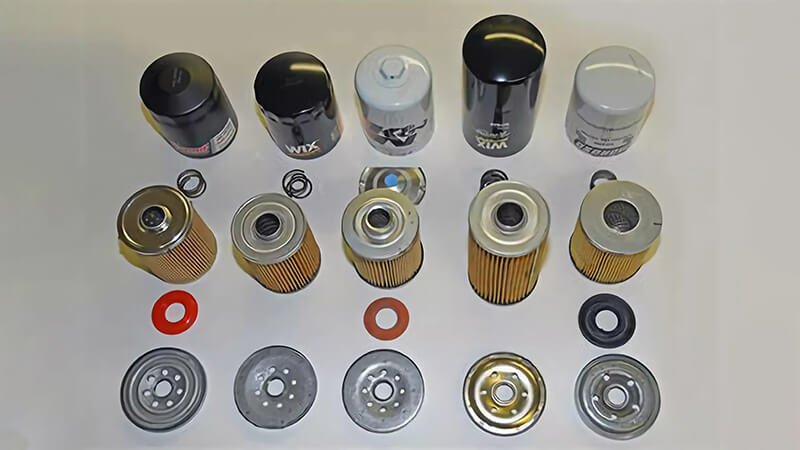
Capacity
The capacity of an oil filter refers to its ability to hold contaminants without clogging. A higher capacity filter can store more particles, which is especially important during long oil change intervals or in engines that produce more contaminants. Choosing a filter with adequate capacity ensures that it can handle the engine's needs without restricting oil flow. I consider the engine size and the manufacturer's recommendations when selecting a filter with the right capacity. This ensures that the filter can maintain optimal performance and protect the engine effectively over its service life.
Flow Rate
The flow rate of an oil filter is crucial for maintaining proper oil circulation through the engine. A filter with a low flow rate can restrict oil flow, leading to inadequate lubrication and potential engine damage. It's important to select a filter that allows oil to flow freely while still providing effective filtration. I look for filters that offer a balance between high filtration efficiency and sufficient flow rate. Ensuring the right flow rate helps maintain engine performance and prevents issues related to poor lubrication, such as overheating and increased wear on engine parts.
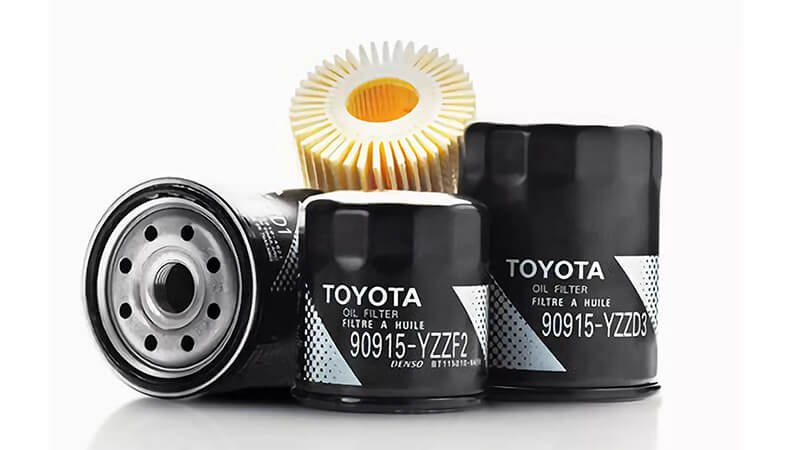
What oil filters have a 99% efficiency of filtration?
Oil filters with 99% filtration efficiency6 are designed to remove almost all contaminants from the engine oil.
These high-efficiency filters provide superior protection by capturing almost all harmful particles.
Top 99% Efficiency Oil Filters
High-efficiency oil filters typically feature advanced filtration media and construction7. Brands like Bosch, Mobil 1, and K&N8 offer filters that achieve 99% efficiency. These filters often use synthetic materials9 that trap smaller particles without restricting oil flow. Investing in a 99% efficient filter can reduce engine wear10, improve performance, and extend the engine's lifespan. Additionally, these filters are designed to handle high pressures and temperatures, making them suitable for a variety of driving conditions.
One of the standout features of 99% efficiency filters is their ability to capture finer particles that standard filters might miss. This includes metal shavings, soot, and other microscopic debris that can accumulate over time. By removing these particles, the filters help maintain the oil’s integrity, ensuring it continues to lubricate and protect the engine effectively. Moreover, high-efficiency filters often come with enhanced construction materials, such as multi-layered filter media and robust housings, which contribute to their superior performance and durability.
Another advantage of these filters is their extended service intervals. Due to their higher capacity and efficiency, they can often last longer between oil changes, providing convenience and cost savings over time. However, it’s important to follow the manufacturer’s recommendations and monitor the filter’s condition, especially in high-stress environments like racing or heavy-duty driving. Overall, choosing a 99% efficiency oil filter is a wise decision for those seeking maximum engine protection and long-term performance.
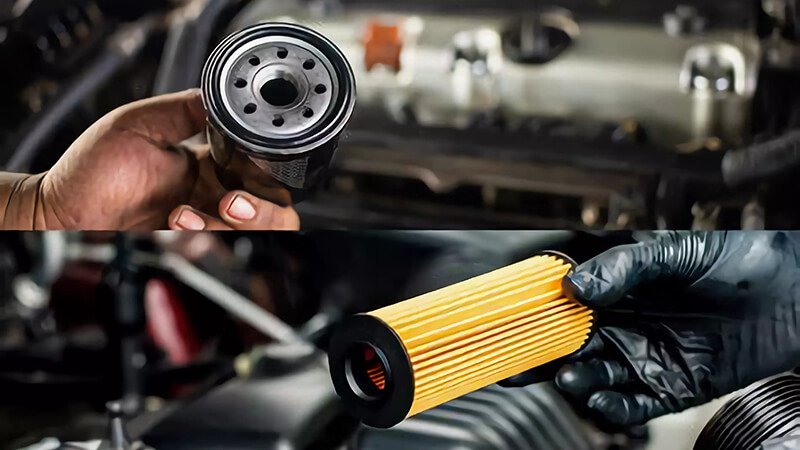
What type of oil filter has the highest filtration efficiency?
The highest filtration efficiency is typically found in synthetic or high-performance oil filters11.
Synthetic oil filters offer the best protection by capturing the smallest particles12 effectively.
Synthetic Oil Filters
Synthetic oil filters13 are engineered with advanced materials14 that provide superior filtration compared to conventional filters. These filters use synthetic fibers and media15 that can trap finer particles, ensuring cleaner oil circulates through your engine. The design of synthetic filters often includes multiple filtration stages16, which enhance their ability to remove contaminants. Additionally, they maintain consistent performance over longer intervals, reducing the need for frequent replacements.
High-performance synthetic filters also offer better durability and resistance to clogging17, making them ideal for high-stress environments such as racing or heavy-duty driving. They are designed to handle higher pressures and temperatures18, ensuring reliable performance even under extreme conditions. The enhanced filtration capabilities of synthetic filters lead to improved engine efficiency19, reduced wear and tear, and prolonged engine life. Moreover, synthetic filters often feature anti-drain back valves and higher quality sealing materials20, which prevent oil leakage and ensure optimal filtration performance.
Choosing a synthetic oil filter means investing in the best possible protection for your engine. These filters are particularly beneficial for modern engines21 that operate at higher temperatures and require more precise oil management. By providing cleaner oil and maintaining consistent filtration efficiency, synthetic oil filters help maintain engine performance and reliability. Whether you drive a high-performance vehicle or simply want to ensure your engine stays in top condition, synthetic oil filters are an excellent choice for achieving the highest level of filtration efficiency.
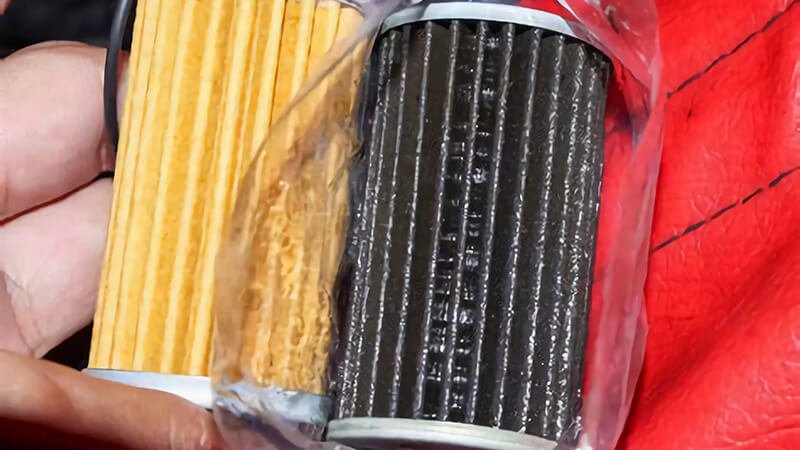
What is the best micron rating for oil filters?
The best micron rating for oil filters22 depends on your engine’s requirements, but generally, a rating between 10 to 30 microns is ideal.
Selecting the right micron rating ensures optimal filtration23 without restricting oil flow.
Understanding Micron Ratings
Micron ratings indicate the size of particles an oil filter can trap. A lower micron rating means the filter can capture smaller particles, offering better protection. However, filters with very low micron ratings can restrict oil flow, potentially affecting engine performance24. For most engines, a micron rating between 10 and 30 strikes a balance between filtration efficiency and oil flow.
When choosing the best micron rating, it's essential to consider the manufacturer's recommendations25 and the specific needs of your engine. Engines that operate under extreme conditions or have high-performance components may benefit from filters with lower micron ratings, as they can capture finer particles that could cause significant wear. On the other hand, standard engines running under normal conditions typically perform well with filters in the 10 to 30 micron range.
Additionally, the type of oil you use can influence the ideal micron rating. Synthetic oils26, which are designed to flow more freely and maintain their viscosity across a wider temperature range, may pair better with filters that have lower micron ratings. This combination ensures that even the smallest particles are effectively removed without compromising oil flow. Conversely, conventional oils might work well with slightly higher micron ratings, providing adequate protection while maintaining efficient oil circulation.
It's also important to consider the driving conditions27 you typically encounter. Frequent short trips, stop-and-go traffic, or heavy towing can introduce more contaminants into the engine oil, necessitating a filter with a lower micron rating for better protection. Conversely, if you drive primarily on highways with less engine strain, a filter with a higher micron rating may suffice. Ultimately, selecting the best micron rating involves balancing filtration efficiency with oil flow requirements, tailored to your engine's specific needs and operating conditions.
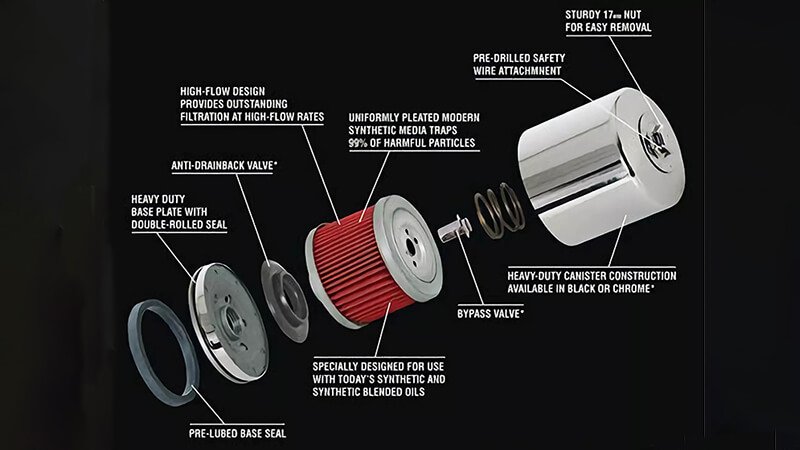
Conclusion
Choosing the right oil filter is crucial to maintaining the health and performance of your engine. A high-quality filter not only removes contaminants from the oil but also ensures that your engine is lubricated with clean, fresh oil, preventing wear and tear on vital components. When selecting an oil filter, consider factors such as the filter's capacity, compatibility with your engine, and the type of oil you use. Always prioritize filters from reputable brands that meet or exceed OEM specifications. Regular oil changes, paired with the right oil filter, can significantly extend your engine's lifespan and enhance overall vehicle performance. Don't underestimate the importance of this simple yet essential component – it's a small investment that protects one of your vehicle's most expensive and critical parts.
-
Learn how to choose the right oil filter based on your specifications ↩
-
Understand vehicle requirements to choose the right oil filter ↩
-
Ensure engine safety and performance ↩
-
Precisely match filters to your vehicle ↩
-
Improve filtration efficiency to remove more contaminants ↩
-
Learn how 99% efficient oil filters improve engine protection ↩
-
Master the technical characteristics of high-efficiency filters ↩
-
Learn about high-efficiency filters from well-known brands ↩
-
Learn how synthetic materials improve filtration effects ↩
-
Learn how high-efficiency filters extend engine life ↩
-
Learn about the advantages of synthetic and high-performance filters ↩
-
Learn how to effectively capture tiny particles ↩
-
Learn more details about Synthetic oil filters. ↩
-
Learn how advanced materials improve filtration ↩
-
Explore how synthetic fibers improve filtration performance ↩
-
Learn how multi-stage filtration enhances contaminant removal ↩
-
Learn how filters perform under high pressure ↩
-
Master the reliability of filters under extreme conditions ↩
-
Learn about the impact of filters on engine performance ↩
-
Explore how leak-proof design ensures optimal filtration ↩
-
Learn about the requirements of modern engines for high-efficiency filters ↩
-
Learn about the suitability of different micron ratings ↩
-
Learn how to optimize filtration efficiency ↩
-
Learn about the impact of filter selection on your engine ↩
-
Follow manufacturer recommendations to ensure optimal filtration ↩
-
Learn about how synthetic oil affects filter selection ↩
-
Choose the right filter for your driving environment ↩













